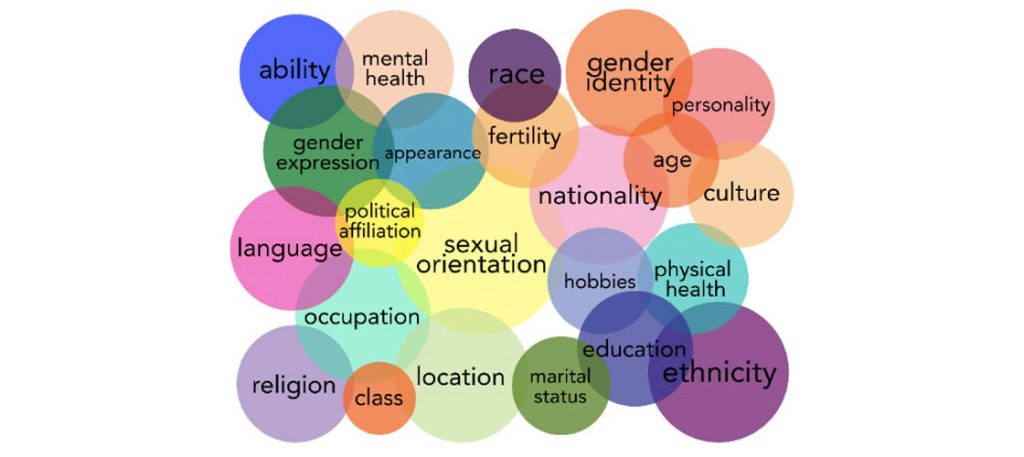One of my academic fields is gender studies. I bring this strength to my coaching so that I can help folks see how gendered power relations are relevant in their lives.
The fact is that there is no such thing as a gender-neutral social relation or space. Gender is always “at play,” and can either lift us up or bring us down in terms of jockeying for power in specific contexts.
Feminists have known this for a long time—that difference is always about “othering” in order to wield more power for one’s self. In a patriarchal society, gender is always about power and control. If you are socially positioned as the “weaker” one, some people will see you as “less than.”
That’s because we have been trained to see things in simple binaries, rigid categories, and social hierarchies.
Power relations get even more complicated from an intersectional perspective, when you add in other power-valenced markers like race, class, age, ability, education, religion, etc.

But it has even gotten more fraught and politicized in the past decade.
In Judith Butler’s latest book Who’s Afraid of Gender (2024), they argue that gender has become a psycho-social phantasma, a placeholder and floating signifier for everything that’s wrong with society. And the current embodied scapegoat is transgender people, a tiny minority who are historically and currently persecuted for their gender differences and presentations. They have very little political and economic power as a group, and therefore are easy to pick on.
So gender has recently become weaponized to be “the sum of all fears” and the touchpoint for all that is wrong with the nation-state, including the anxiety that heterosexual couples are not reproducing enough new citizens. On an unconscious level, gender drives at the very core of identity, and is thus a convenient vessel of fear.
As a “coach for critical thinkers,” I am keenly aware of how power works across differences, and how it may affect the quality and safety of YOUR life. I can help you talk through and work through this level of social influence, if that is something you think is helpful. I steadfastly support the LGBTQIA2S+ community, and operate from an intersectional perspective.
